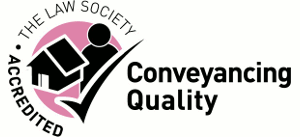Stamp Duty on a Second Home
If you’re buying a second home that you won’t be living in, you’ll be charged an additional rate of stamp duty. The amount you pay depends on the property value and where you live in the UK. We explain the rules for second homes and look at cases where you may not have to pay stamp duty.
- Who has to pay stamp duty on a second home?
- How much is stamp duty on a second home?
- Are any homes exempt from stamp duty for second homes?
- What if the home I’m buying will be my main residence?
- What if my partner already owns a home. Will I have to pay stamp duty?
- In what circumstances might stamp duty not be payable on a second home?
England and Northern Ireland
The stamp duty thresholds were raised in the September 2022 mini-budget. Stamp duty for second homes from 23 September is shown in the table below:
(Property value - Standard stamp duty rate - Additional property stamp duty rate)
Scotland
Buyers of second homes in Scotland have to pay the ‘Additional Dwelling Supplement’ on top of the Land and Buildings Transaction Tax (LBTT). This is 4% on the purchase price of properties over £40,000.
(Property value - Land and Buildings Transaction Tax rate - Additional Dwelling Supplement)
Wales
Buyers of second homes in Wales have to pay the higher residential rate of Land Transaction Tax (LTT) for properties over £40,000.
(Property value - Standard LTT rate - Higher residential rate)
If you haven’t sold your previous main residence by the day of completion on your new home, you’ll have to pay the second property tax. That’s because you now own two properties.
But the good news is that you can apply for a second-home stamp-duty refund if you sell your previous main home within 36 months.
Guide provided by Comparethemarket
Why Choose Bartletts Solicitors?
Solid Traditional Values Delivered
in a Modern Convenient Manner
Our firm has years of experience of property transfers in the city of Liverpool and across Merseyside.
Law Society Accredited for Conveyancing Quality. Competitive fixed fees, no obligation free quotations and no hidden costs.
Your conveyance will be handled by Louise Nelson, a solicitor with over 40 years’ experience of helping people buy and sell property in Liverpool.
Louise heads a friendly team of experienced conveyancers. Jenny Thomas, Louise Drewry and Lucy Baines have detailed knowledge of the files they work on, meaning when you call you will get prompt answers and updates.
Bartletts Solicitors was managed by John Bartlett for over 40 years, the last 25 of which he was assisted by Trevor Morris. Trevor is now the managing director, representing continuity for the firm’s traditional values and customer satisfaction ethos.
Send Our Liverpool Conveyancing Solicitors an Enquiry:
(or give us a call on 0151 227 3391)


All conveyancing and property-related work is supervised by Louise, who has worked as a solicitor for over 40 years. Louise has spent her entire career at our firm. Bartletts has earned the Law Society’s Conveyancing Quality accreditation, which is a difficult stamp of approval to obtain. Every property lawyer at the firm is examined and checked by the Law Society every year. Many firms fail to achieve this mark of quality.
Further Information:
- Right to Buy Your Home
- First-Time Buyers
- Buy-to-Let
- Residential Stamp Duty Rules on Second Homes
- Fixed Prices for Our Residential Conveyancing Services
Related Trustpilot Reviews:
Bartletts is proud to support a number of public bodies and charities, including Liverpool Cathedral, National Museums Liverpool, the Walker Art Gallery and Zoë’s Place Baby Hospice. You can find out more on our blog or on social media.
“I was delighted Bartletts Solicitors continued their tradition of philanthropy with Liverpool Cathedral this year. Thank you so much for your generous gift.” - The Dean of Liverpool, The Very Revd Dr. Sue Jones (Dec 2020)



